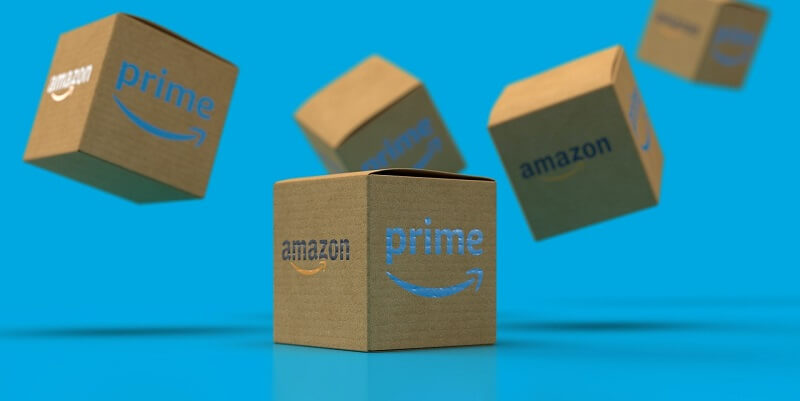In the rapidly evolving world of retail and e-commerce, Amazon has emerged as the pioneering force, setting the pace for other industry players to follow. With its relentless focus on innovation and customer satisfaction, Amazon continues to redefine the rules of the game. In this article, we delve into the various strategies employed by Amazon and their implications on the broader retail landscape.
The Significance of Evaluating Performance with Return Costs
To truly understand the performance of retailers and e-commerce sellers, it is crucial to consider the impact of return costs on their business. Recognizing this, Amazon has embraced a holistic approach by factoring return costs into their advertising and overall business evaluation. By doing so, they gain a clearer understanding of their financial standing and take actions to optimize their processes accordingly.
Tackling the Burden of Return Costs: Amazon’s In-Store Returns
Understanding the financial strain and logistical challenges posed by return costs, Amazon has been actively encouraging customers to return items in physical stores. This approach not only minimizes shipping costs and processing time but also allows for better control over the return process. By leveraging their extensive network of brick-and-mortar locations, Amazon aims to streamline the returns process, improving customer satisfaction while reducing the burden of return costs.
The FTC’s stance on fake online product reviews
In a landmark development, the Federal Trade Commission (FTC) has reinforced its long-held position that fake online product reviews are not only misleading but also illegal. This regulatory step underscores the significance of transparent and trustworthy reviews in the e-commerce realm. As consumers increasingly rely on online feedback to make purchase decisions, this step offers much-needed protection against deceptive practices.
Penalties for Fake or Misleading Reviews: Implications for Businesses
The FTC’s stringent regulations bring significant penalties into play for those engaging in fake or misleading reviews. With potential fines of up to $50,000 per review, businesses found guilty of such practices face substantial financial repercussions. The severity of these penalties aims to discourage fraudulent practices, safeguard consumer trust, and promote fair competition in the marketplace.
Expanding Regulatory Reach: Implications for Influencer Marketing
While the FTC rules primarily target online product reviews, there is potential for them to be extended to influencer marketing practices. As influencers play a significant role in shaping consumer opinions, ensuring authenticity and transparency in influencer partnerships is of paramount importance. Businesses must exercise caution, as failure to comply with the FTC’s guidelines may lead to severe consequences and reputational damage.
Microsoft’s Vision for an Expanded App Store
Microsoft announced its plans to launch an app store for iOS and Android devices, specifically tailored for the European market. With the rising popularity and demand for mobile applications, Microsoft aims to tap into this lucrative market while offering users a seamless and secure platform to discover and download apps. This strategic move demonstrates the growing importance of app ecosystems in the digital landscape.
Meta’s Game-Changing Feature: Installing Apps Directly from Ads
Meta, formerly known as Facebook, is revolutionizing the app installation experience through its latest feature. Users can now click on an advertisement and instantly install the respective app, eliminating the need for multiple app store visits. This streamlined process not only enhances user convenience but also empowers developers and advertisers to drive higher app adoption rates.
Predictions for Future Adoption: Paving the Way for Other Industry Leaders
Industry expert Eric Seufert from Stratechery foresees other major companies following in the footsteps of Microsoft and Meta. The introduction of well-curated app stores and streamlined app installation experiences is expected to become a widespread practice as companies recognize the immense potential for revenue generation and user engagement within this space.
Legal Gray Zone: The EU’s Role in Shaping the Future
The future proliferation of these strategies largely depends on how the European Union (EU) fills in the legal gray zone surrounding these practices. As the EU evaluates and establishes regulations governing app stores, fake reviews, and influencer marketing, their decisions will shape the trajectory of the industry. Striking the right balance between innovation, consumer protection, and fair competition will be crucial to fostering a thriving digital landscape.
Amazon’s trailblazing strategies in retail and e-commerce continue to pave the way for industry transformation. By factoring in return costs, emphasizing transparency in reviews, and exploring new avenues like in-store returns, the e-commerce giant sets new benchmarks for others to aspire to. The regulatory landscape, guided by the FTC and supported by the EU, plays a critical role in ensuring fair practices and consumer trust within the digital realm. As the industry evolves, businesses must adapt, innovate, and embrace ethical practices to thrive in this dynamic landscape.

